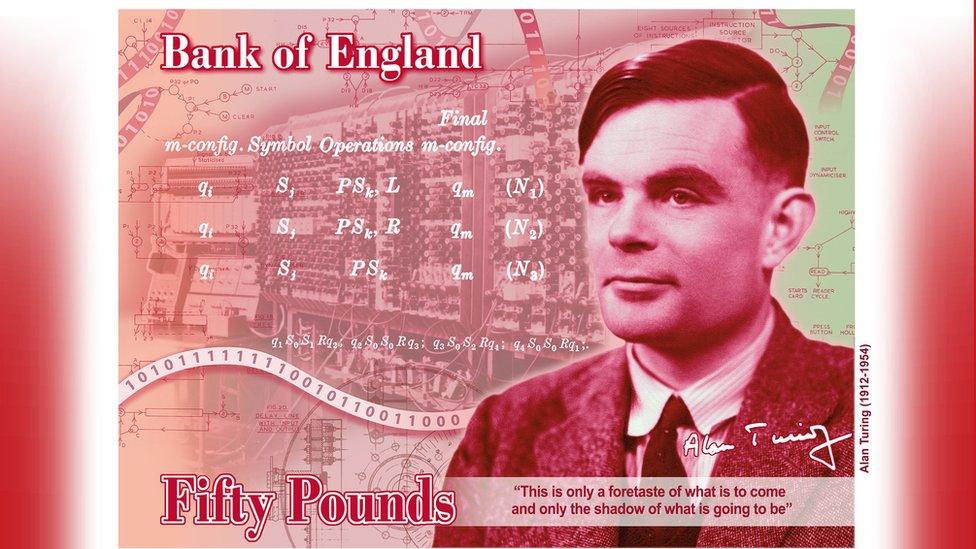Banknotes: More than £24.5bn of £20, £10 and £5 notes not returned
- Published
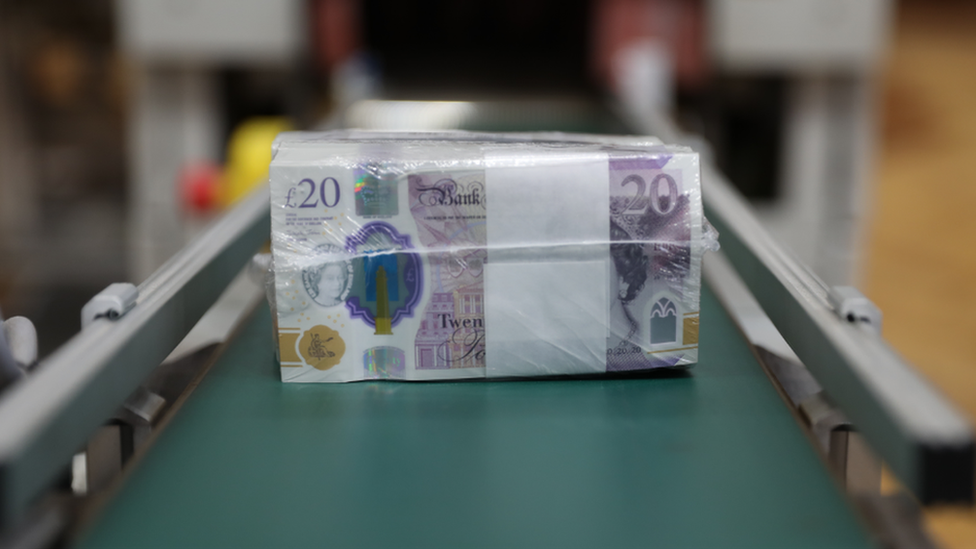
The Bank of England has not yet set out its six-month deadline for the paper £20 to stop being legal tender
More than £24.5 billion in old fivers, tenners and twenty pound paper notes are still in circulation.
The Bank of England says 115 million paper £5 notes, 83 million £10 paper notes and 1,157 million £20 paper notes have still not been returned.
The £5 notes were withdrawn in May 2017 and the £10 notes in March 2018, since when they have not been a legally accepted means of payment.
The date that paper £20 notes cease to be legal tender has not been decided.
"The impact of Covid-19 on spending" has affected the return rates says the Bank of England.
The old paper £20 notes bearing the image of economist Adam Smith are being taken out of circulation, so notes returned to banks or to cash centres by retailers will not be used again.
The £20 note is Britain's most common, and most forged, banknote, but the Bank of England said the new polymer £20 - which entered circulation in February - is its most secure ever banknote.
A Bank of England spokeswoman told BBC Wales the number of £5 paper notes returned - 227 million - was lower than expected, while the number of £10 notes (708 million) was in line with expectations.
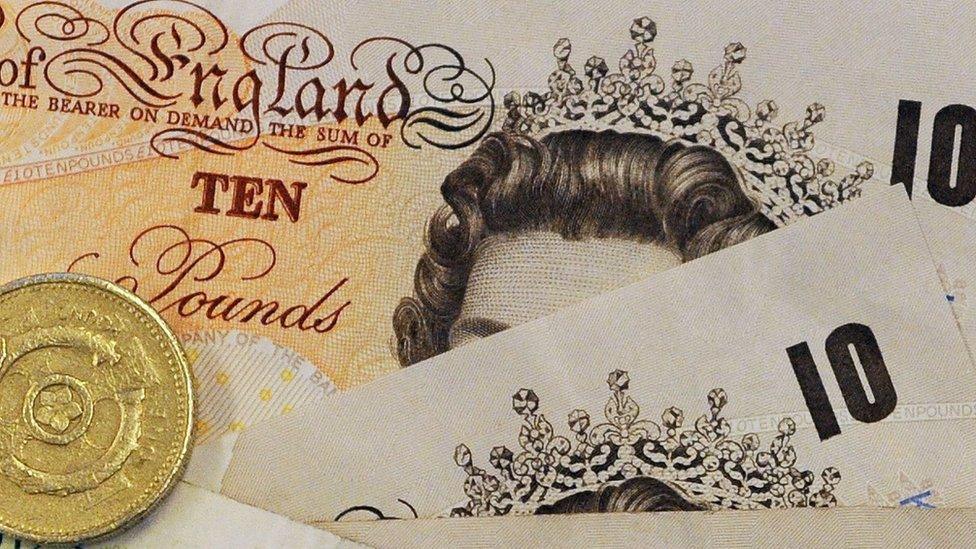
The old £10 note has gone the way of the old pound coin
She said that 686 million paper £20 had been returned and they expect returns to increase "just prior to the date" it stops being a legally accepted means of payment - a decision on this date has not yet been made.
She said the shortfall in returned fivers was likely to be because, as notes of relatively low value, they were more likely to be lost or damaged - together with a desire to retain them as souvenirs.
A relevant factor for all denominations, she said, is "the impact of Covid-19 on spending and how this feeds through into changes in the rate at which the old paper notes are being spent, deposited at financial institutions, and subsequently returned to the Bank".
While the paper £5 and £10 notes are no longer legal tender, external, they will always be accepted by the Bank of England.
People can take or post any old notes to the bank in Threadneedle Street, in the City of London, to be exchanged for a new-style polymer one.
The spokeswoman added: "All genuine Bank of England banknotes that have been withdrawn from circulation retain their face value for all time and can still be exchanged, external over the counter.
"There is no fee for this service and there is no expiry on the period in which we will exchange old notes. Banknotes can also be exchanged by post."
Five facts about the new Winston Churchill fiver
The move to the new £20, £10 and £5 notes - depicting artist JMW Turner, author Jane Austen and Winston Churchill respectively - has been controversial.
The Bank of England has persevered with the polymer material despite complaints from religious and vegan groups that it contains a small amount of tallow, which is derived from meat products.
The demise of the paper notes follows the official withdrawal in October 2017 of the old circular £1 coin, which has been replaced by a 12-sided version - about 122m round £1 coins have not been returned to the Royal Mint.
- Published29 July 2020
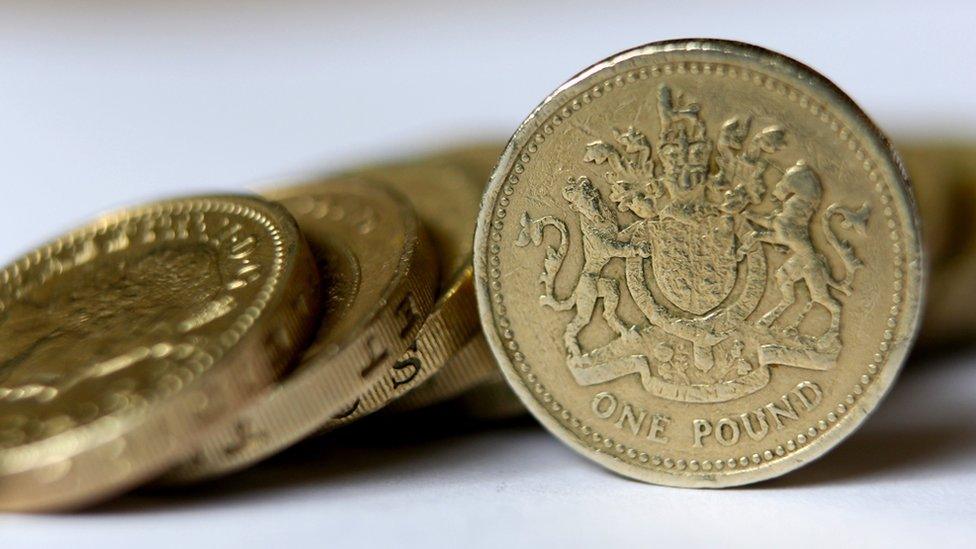
- Published21 February 2020
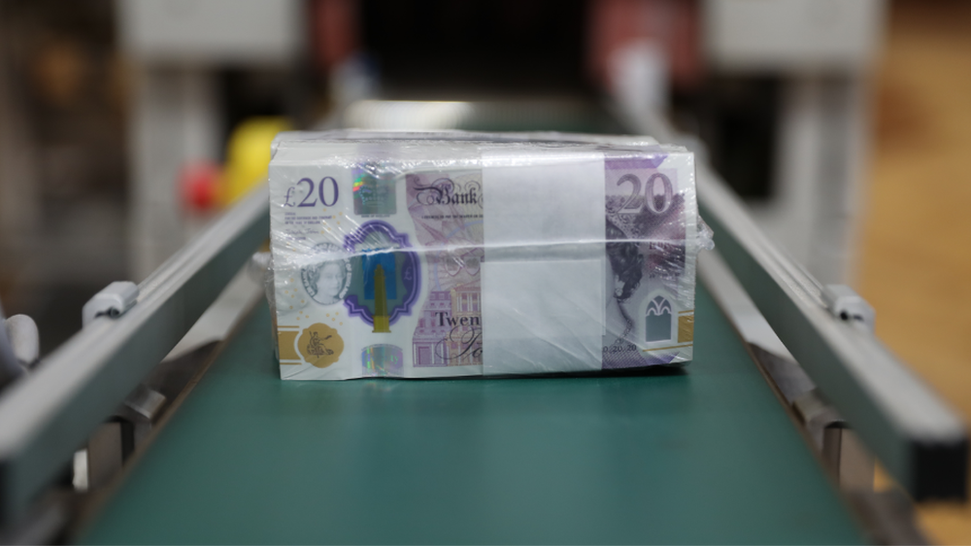
- Published20 February 2020
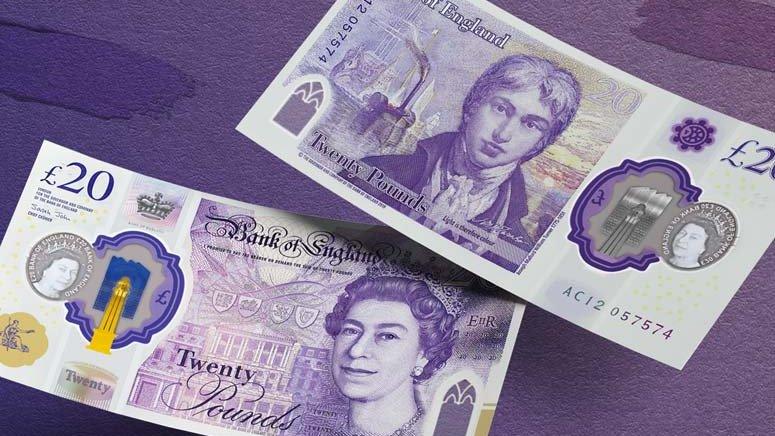
- Published10 October 2019

- Published15 July 2019
